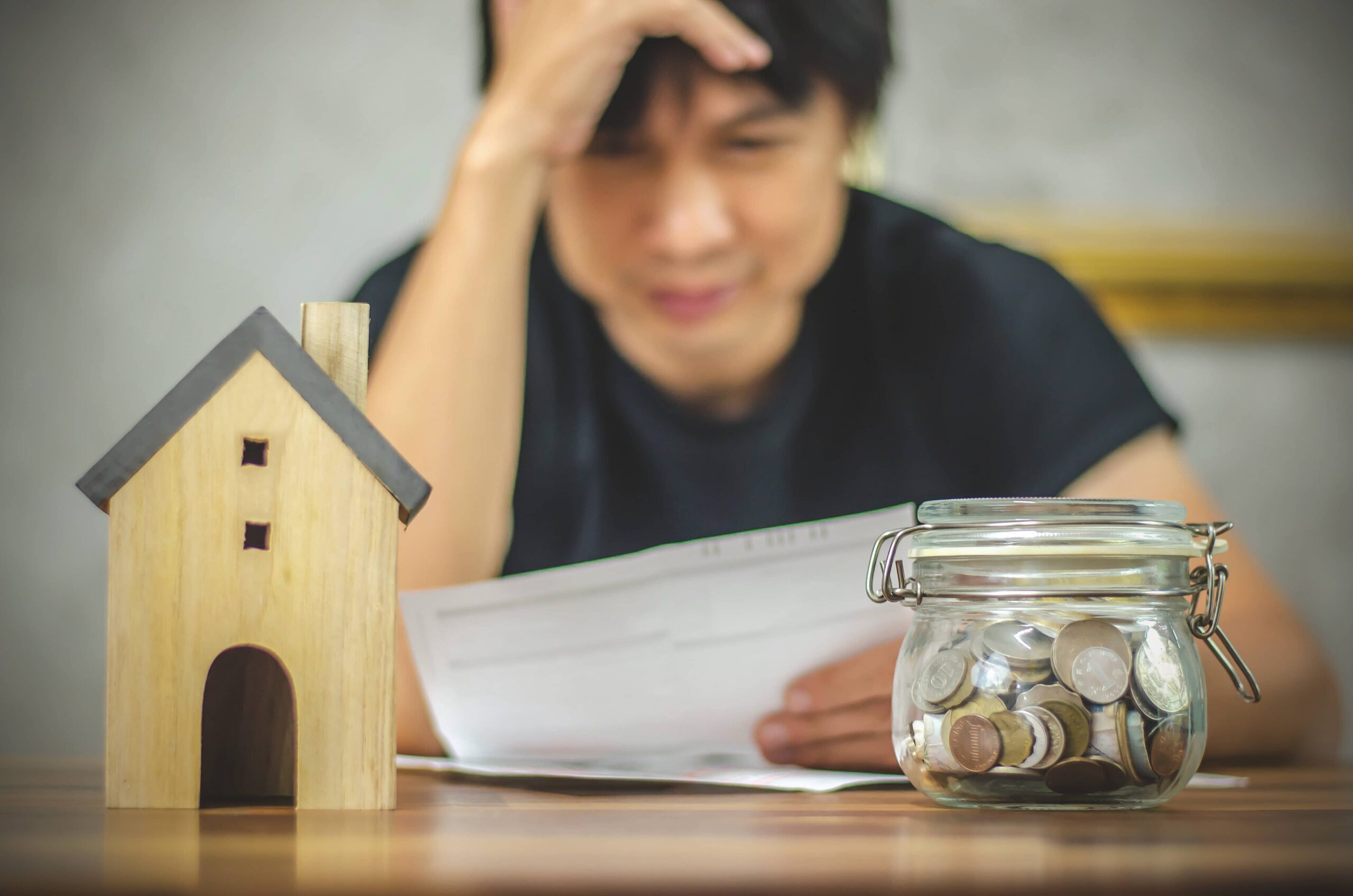Before committing to an IVA (or individual voluntary arrangement), it is important to consider and fully understand both the short and long-term effects of the agreement. Below are some of the most commonly asked questions about the implications an IVA might have on your life.
We're Here to Help YOU
Speak with Our Team of Debt Consultants.
Do you have questions or would you like more advice?
You can book an appointment with our team of debt consultants in minutes.
Just click the button to book your appointment today.
May not be suitable in all circumstances.Fees apply. Your credit rating may be affected.
How Will an IVA Affect My Home?
Homeowners and Mortgages
Unlike petitioning for bankruptcy, an IVA is designed to allow you to keep the property, although this is subject to creditor approval. If approved, the IVA will protect your home and allow you to keep making monthly repayments to your secured lenders, such as the mortgage company, as usual.
However, if you have already paid off your mortgage loan, or have otherwise been advised to by mortgage experts as you have a significant amount of available equity, you can choose to sell your home and use the money to pay off your IVA with a lump sum payment. In these circumstances, your creditors would expect you to pay your debts in full, if there is sufficient equity to clear your debts. Creditors would allow you to make monthly payments until the house is sold, and then contribute sufficient funds from the proceeds of sale into the arrangement. As the fees of the IVA would also need to be paid, as well as paying the creditors in full, you will pay back more than you owe. You should carefully consider this option, however, if you are facing legal pressure from your creditors, such as a charging order application, or a bankruptcy petition, then the IVA would offer you legal protection.
In an IVA, the way the property is dealt with will depend on your equity. At the start, the insolvency practitioner will calculate your available equity, based on 85% of the value of the property, and the outstanding secured debts.
- If the available equity is less than £5,000, then no further action is required, and the IVA will be proposed as a 60 month IVA; or
- If the available equity is more than £5,000, however, based on your current circumstances, it is unlikely you will be able to obtain a remortgage within the criteria of the IVA Protocol, the IVA will be proposed as a 72 month IVA; or
- If the available equity is more than £5,000, and there is a prospect you will be able to obtain a remortgage in month 54, the IVA will be proposed as a 60 month IVA, however, in month 54, your equity in the property will be recalculated. At this point, if it is still more than £5,000, you will be required to look into remortgaging the property to release the equity, or if you are unable to obtain a remortgage within the criteria of the IVA protocol, then you will need to make a further 12 months payments.
Once the IVA is approved, and you decide to sell the property, it is likely that you will need to pay sufficient funds into the arrangement to pay creditors and fees in full, unless creditors agree otherwise.
Rental Tenants and Landlords
For tenants, taking out an IVA will not affect your rental agreement – your monthly rent will continue to be paid to your landlord or housing association, outside of your IVA. So, as long as you make your rent contribution on time, you should be fine. If there are any rent arrears, you will need to make a separate arrangement to pay these outside of the IVA, if you want to remain in the property. Unless there are outstanding arrears, your insolvency practitioner will not notify your landlord about the insolvency, however, you may want to consider advising them if there is a condition within your lease about entering insolvency during the term of the tenancy.
However, an IVA will affect your credit rating, and you will appear on the Individual Insolvency Register (IIR). This means that you might struggle to move to a new rental property whilst in an IVA if your landlord requires you to undergo a credit check, however, this depends on the landlord’s criteria.
For landlords, an IVA can be an ideal solution for dealing with your personal debt, when compared to bankruptcy, as the IVA provides greater flexibility for how you deal with your debts. In bankruptcy, any asset you own will vest in the Trustee in bankruptcy and they will be free to sell it. In an IVA, creditors may allow you to retain some or all of your properties. This means you will be able to continue renting them out, whilst also keeping your additional income and guaranteeing future income. However, some buy to let lenders may require the properties to be sold, even if you are expected to maintain payments to them in the IVA, and therefore, you should carefully check any secured loan wording before entering into an IVA, and speak to the lender.
How Will an IVA Affect Me?
- You will not be able to take out new debts of over £500.
- Your name, address, and date of birth will be findable by the public, as they will appear on the Individual Insolvency Register (IIR).
- It may affect employment, for example if you are a solicitor or accountant.
- All additional assets and income may be required to be paid towards your IVA. If your income improves, your contributions may increase or if you receive an unexpected windfall, these would need to be paid into the arrangement if more than £500.
- You must stick to the budget agreed with your licensed insolvency practitioner.
- Your credit rating will be affected, and the IVA will be visible on your credit file for six years from when the IVA was made.
Will an IVA Affect My Savings?
The first thing to consider is whether your bank account is linked to your debts. For example, do you have debit or credit cards from the same banks that offer loans for people – this could simply be that they are owned by the same umbrella company? Or, does the item you are behind on repaying, such as your mobile phone contract, automatically come out of your bank account?
If this is the case, you may need to close your bank account and set up a new one whilst your IVA is being processed. This is because your bank might have the “right to offset” your debts, taking the money straight out of your account, and may even charge an additional fee for doing this. However, once your unsecured debts are covered by the IVA, your debts will be frozen and only repaid through the insolvency practitioner.
All savings will be considered, along with your other assets, when working out whether there are any assets, in addition to your monthly contribution, that will need to be paid into the arrangement. There are some assets, such as a house or car, that your creditors are happy for you to keep, subject to your circumstances. There are other assets, such as tools of trade, or an approved pension scheme, that are automatically excluded, and you can also keep. But there are some assets, such as savings, that creditors would expect you to pay into the IVA, as they are surplus to your requirements.
Thus, the more savings you have, the more you would be expected to pay into the IVA. If the savings are below a certain amount, and used for budgeting, creditors will usually agree for you to keep these, as they form part of your monthly household income and expenditure. If your only savings are in the form of an approved pension scheme, then this would be excluded from the IVA, as it would be excluded in the event of your bankruptcy.
If you are unsure whether your bank account or savings account is linked to your debts, you can get in touch with an insolvency practitioner, such as NDH Financial, they can confirm whether they will be affected.
Can I Go on Holiday Using an IVA?
Technically, there is nothing to say that you cannot go on holiday whilst you are on an IVA. However, there are two ways in which an IVA might affect your holiday plans.
Firstly, the insolvency practitioner will want to know where you have got the money from to pay for your holiday. If, say, this is because your income increases, or your receive a bonus, it is expected that you will make an increased payment towards your IVA, rather than spending it on a holiday. You will be entitled to keep some of the additional income, as only 50% will need to be paid into the IVA, and provided your 50% covers the cost of the holiday, the insolvency practitioner will not have any objections
The second way an IVA might affect your holiday is if you opt for a “buy now, pay later” package, or pay the cost of the holiday off in instalments. As an IVA will be visible on your credit history, the travel agent will be able to see it if they request your credit scores or your credit reference file. In this case, the travel agent may deny your holiday payment plan due to bad credit after checking your credit report.
The insolvency practitioner is able to authorise a payment break in the IVA, however, they will be unable to do this for increased costs due to a holiday. Therefore, you should ensure that you have budgeted for the holiday in a way that allows you to keep up with the payments into the IVA.
We're Here to Help YOU
Speak with Our Team of Debt Consultants.
Do you have questions or would you like more advice?
You can book an appointment with our team of debt consultants in minutes.
Just click the button to book your appointment today.
For more information about how an IVA might affect you personally, get in touch with NDH Financial today for a tailored IVA consultation. We can provide a free, no-obligation IVA assessment appointment, so be sure to book yours today.


